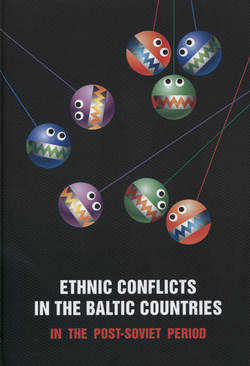Читать книгу Ethnic Conflicts in the Baltic States in Post-soviet Period - Сборник статей - Страница 16
Baltic national minorities as victims of selective weapons of mass destruction
Vladimir Viktorovich Buzaev, Ph.D. in Geology and Mineralogy
Co-chairman of the Latvian Human Rights Committee
Status of languages of ethnic minorities
ОглавлениеIn the Baltic countries, only two ethnic minority languages have a reproduction mechanism, i.e. school network: Russian and Polish. School network with education in Polish is present in Lithuania (64 schools with 11,300 students in school year 2007/2008) and in Latvia (5 schools with 1147 students in school year 2010/2011, 3 of those are secondary).[9]
In the preparation of the resolution of the 2011 Regional Conference of Russian Compatriots in Latvia, Lithuania and Estonia, the author collected comparative statistical data supporting a special role of Russian language in the Baltic States (Table 5).
Table 5
Population of Baltic States by ethnic composition and relation to Russian language (million persons)*
* Population and ethnic composition data are taken from the websites if Interior Ministries of the respective countries)as of August 2011); data on the share person whose native language is Russian from the 2000-national population census; language fluency data taken from the study “Russian language in new independent stated”, Eurasia Foundation, 2008.
This is how the status of Russian language was reflected in the Resolution: “The constitutions of all three countries name the native language of ethnic majority as the state language. The languages of ethnic minorities, among which Russian (in Lithuania, together with Polish) is predominant, are unnaturally called ‘foreign’ in legislative acts of Latvia and Estonia. Russian has been banished from the state administration and court procedures, erased from geographic maps and personal documents, is prohibited from being used in the communication of the people with the authorities even in the areas where ethnic Russians are a majority.
Following Latvia’s example, the local state languages are unreasonably forced as the languages of education onto the educational systems in Estonia and Lithuania. Russian is not among the mandatory school subjects in the ethnic majority schools, which leads to dramatic fall in the knowledge of the language by the young generation.
The guarantees of their languages given to the ethnic minorities in the Framework Convention for the Protection of National Minorities that has been ratified by all three Baltic States are not working. Russian, which is one of the most spoken languages in the world, is spoken by 60 % of the Baltic population and is native language for almost one quarter of their population, in terms of the level of legal protection is significantly lower than a dialect of a minor group living in the country where the standards of ethnic minority protection are followed.”
9
Data on Polish schools in Lithuania and Latvia are taken from the corresponding Wikipedia articles.
